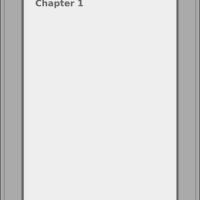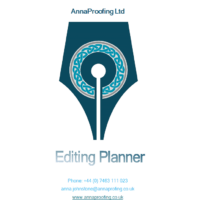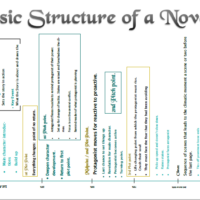
by Anna Johnstone | Nov 28, 2017 | Advice, Blog, Service
A sample edit is an indicator of many things; the professionalism and ability of the editor is only one factor. The sample indicates the level of the work to be undertaken and it allows the editor to asses pricing but did you realise it also shows the editor the level of respect they hold for the skills of the editor?
These did not develop overnight and it is not something that just everyone can do. In the last fourteen months, I have lost count of the number of sample edits I have completed. Some of them took me a whole morning and others took me the best part of a day, depending on the amount of work that needed to be done.
‘But why should authors pay for what they can get for nothing?‘
The reason to pay for samples is two-fold.
First. Refusal to pay for sample edits signal, at least in part, an expectation that editors are automatically obligated to give up their time, and should be grateful for every scrap of attention an author puts their way. Given that this is an attitude that many of us in the creative industries have to explain when companies and individuals want to pay us in ‘exposure’ and think that the satisfaction of completing the work should be its own reward, it saddens me when we have to deal with this from other creatives. The willingness of an author to pay for a sample edit is a clear indication that they acknowledge that your time is as valuable as the skills they want to employ. It says ‘I understand there is a person at the other end of this email who is working hard to make a living, and they deserve to be paid fairly for the work they put in‘. It tells the editor a great deal about the author: remember they are assessing the author every bit as much as the author is evaluating them. Simply put, it’s a matter showing respect between author and editor.
Second. Many service industries charge a call out fee to cover the time it takes them to assess the work in question, and a sample edit is no different. You would not expect a plumber, cleaner, gardener or electrician to come to your home or to give up a morning of their time for nothing. In my view, creative services are no different. The sample fee implies the level of commitment of that potential client. Even web developers charge a consultation fee, This is not to say that editors should not offer free samples if they so wish, only that you should not be put off when editors do charge for their sample edits. By ignoring the editors who don’t offer free samples you could be depriving yourself of an opportunity. What you have found is not a ‘greedy editor‘, but a confident and skilled professional who knows the value of both their skills and their time.
by | Jan 20, 2017 | Advice, Blog
Writer’s First Rule.
People pay you for your work. Not the other way around. If someone asks you to pay money, ANY money, in order represent your work you need to do several things:
- Tell them you are no longer interested
- Block their number
- Add their email to your ‘blocked senders’ list
Preditors & Editors was an excellent source list of the good, the bad, and the evil in the world of writing services, but unfortunately, it appears to no longer be active.
The advance.
The sum that the publisher pays you which reflects expected sales. Unless you break the contract that’s yours regardless of how well your book sells
Earn-out
Well done. Your book has earned back your advance and then some. You now get to keep your royalties.
Rights
This is the permission you give to the publisher to publish your work in a specific form, language and place. A legitimate publisher will pay you for these rights as part of your contract, but not on a permanent basis. At the end of a set term they revert to you and if that publisher wants them back, they have to pay again. Do not sign any contract which gives the ‘publisher’ permanent rights.
Royalties
A payment structure which offers a percentage of each sale to you. An average figure would be 6-9% for paperback and 10-12% for a hardback. Ebooks earn a whopping 25%. Often the rate increases as more are sold. It is vital that you get a regular statement for these.
Getting paid
The publisher will give you an advance based on what they think they can sell, then royalties on each copy sold. If you have an agent, you will have to pay a small percentage in return for representation. Your royalties should be paid on at least a six-monthly basis from a large publishing house. Smaller ones may have a shorter schedule.
A £10k advance (lucky you) to sell your hardback novel at £10 each at a rate of 10% would earn the writer £1 per copy. They would have to sell 10,000 copies to earn out that advance. Selling anything over 10k copies is when they start paying you the rate switches around and the publisher gets £1 per copy.
Writer’s Second Rule
The agent only gets paid based on what you sell. You do not pay an agent to represent you. 15% is about average. and they don’t get paid until you do.
There may be odd business tax expenses that you need to take care of but these are infrequent and not the same as fees.
What are agents for?
- Handling contract negotiations
- Submissions of manuscripts to editors. Many of the big publishers do not accept manuscripts without an agent. You may struggle with this without an agent.
- Career advice
- Troubleshooting any problems between publisher or editor and you.
- Handling foreign rights, TV, film etc.
- Some might offer editorial assistance
How involved the get will depend entirely on the agent. Always be sure about what you want, and that they are prepared to provide it. If they want 15% of your hard earned royalty, they must earn it. Whether you opt for an agent is entirely up to you. Do not be tricked into believing you must have one for ‘legal reasons’. Anyone can hire a solicitor to look over a contract, but this is a one-off expense and it won’t mean giving up 15% of your sales.
How do I catch one?
You will need to write a convincing query letter along with a sample of the manuscript. Remember the agent won’t get paid unless it sells, they are going to need to be convinced that their time and effort won’t be wasted on a dead-parrot. If an agent accepts straight away or asks for a fee, walk away.
Writer’s Third Rule
Never pay a publisher. A publisher’s role is to print and sell books. The honest ones pay writers to produce work to print. If they ask you for money, run away. These publishers either have no ability or intention to provide marketing or distribution because you have already given them what they are looking for. Money. You would be better off doing it for free on Amazon, a free WordPress blog to serve as an author website, a free facebook page and a twitter account. Be aware that self-marketing without paid advertising is very time consuming and labour intensive (take it from someone who has been working their socks off trying to get a new start-up off the ground for the best part of a year).
Editors.
- Hired by a publishing house to buy the manuscripts for print and sale, or
- Freelancers who help writers get their work to a level where it is fit to be published.
Publishers’ editors are paid by the publishing house, not you, and will work with you until they are happy that the work is saleable. They are responsible for the quality of the finished product.
I am in box number 2. We’re hired by writers to help get your work to a standard where it can be sold. On average you can expect to pay between £25 and £100 per hour for their time and skill. Many of us prefer to charge by word count as it is never clear how much work will be needed on an individual manuscript. If you are looking to publish traditionally, you do not need to hire an editor to get the book ‘ready’ as the in-house editor will do that, but you will need to be certain that the work is of a professional quality. The publishing house should not be asking you for any money to do this work.
If you are looking to publish traditionally, you do not need to hire an editor to get the book ‘ready’ as the in-house editor will do that, but you will need to be certain that the work is of a professional quality. The publishing house should not be asking you for any money to do this work. If you are looking into self-publishing, then an editor is a must. A bad or cheap edit will stand out a mile.
You are not looking for cheap here either. Look at testimonials, look at their websites etc. If they are dirt cheap and have no testimonials, there will be a good reason. If a freelance editor demands more than a 50% upfront deposit, do not hire them.If they don’t offer free samples or refuse to offer a service agreement, these are also red flags.
Self-publishing is not the same as ‘vanity-press’.
Thankfully the stigma of self-publishing has somewhat decreased in recent years, and it has been made easy what with the rise of Amazon Kindle, iBooks, Kobo, Smashwords and Createspace et al. which are generally free except in terms of time and effort. Traditional publishing has been known to take in excess of a year to get books from the author to the page and into the shops. The cost of self-publishing comes in the fact that you are in charge of your own cover, editing, marketing etc. There are also no advances. On the other hand, royalties are paid monthly, come at around 70%, you retain all the rights. It is very important to read all of the terms and conditions before signing up to any of these services. Exclusivity deals, while on the surface might look fruitful but be aware that in recent weeks Amazon has been known to delete whole accounts on the basis of a suspicion. You will have to look carefully into all your options before deciding which route to take.
Sources
More on editors etc.

by Michelle Dunbar Editing Solutions | Oct 26, 2016 | Advice, Blog, Uncategorized
Having spent months, and possibly years on your manuscript, writing, editing, rewriting, editing, and then tweaking it a few more times for good measure, the time will come when the services of an editor will be required. But with so many editors to choose from, all with a wide range of pricing and experience, how do you work out who to hire?
And where do you even begin?
My advice, first of all, would be to seek out the personal recommendations of your fellow authors. Some may have been lucky enough to have found an affordable, yet excellent editor.
Armed with a short list of names to consider, you should take the time to visit each of the editor’s websites with a view to finding answers to the following:
- Do they offer the editing service you are looking for?
- Are they experienced in the editing service you are looking for?
- Do they have a good knowledge of your chosen genre?
- What does the editor charge? (Please note that not all editors list their prices on their website)
- Do they have testimonials/reviews you can read?
- Your initial impression of their website? Does the editor seem organised? Professional? Is their website in disarray and littered with typos?
- Do they offer free sample edits?
With some of your questions answered, and a chosen editor in mind, it’s time to make ‘first contact’ so you can continue your assessment of them.
Introduce yourself, the genre and word count of your manuscript, what editing package you are considering, and enquire about sending them an excerpt of your manuscript for a sample edit. When engaging in communication, consider their level of professionalism and knowledge, as well as their response time. Do they reply within 24/48 hours or are you left hanging on for days? Initial communication can be a good indicator of what to expect if you hire this editor.
I cannot stress enough how important it is to find an editor who is not only experienced and knowledgeable but who you like and feel comfortable with. Likewise, the editor needs to feel comfortable about working with you too. Editing isn’t about going to battle over a particular scene or style of punctuation, it’s about working together with the shared aim of making your book the best it can be.
















